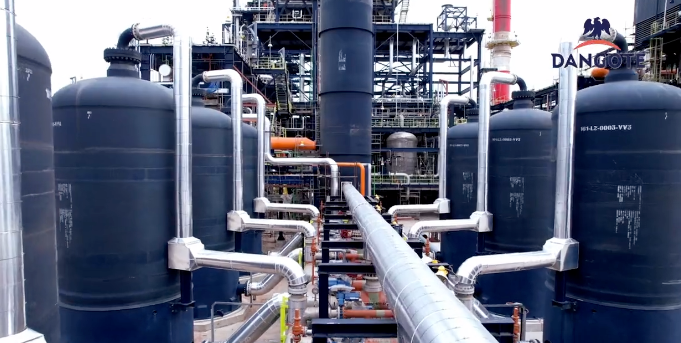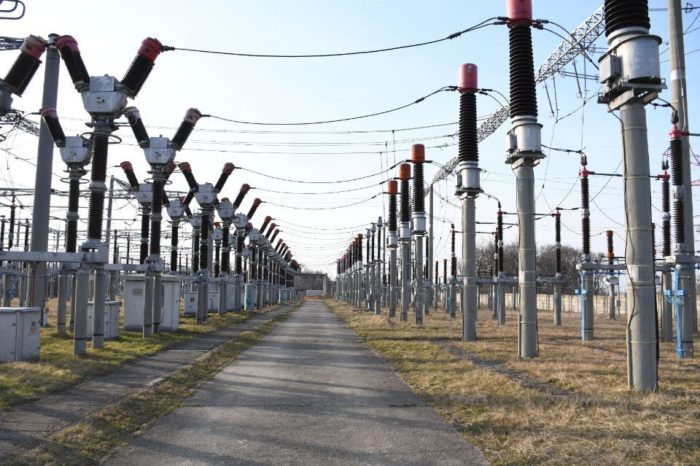Nigeria crude oil output plummets by 13.44% in July, falls 661,000 bpd below OPEC quota, under Tinubu’s administration

Nigeria crude oil output plummets by 13.44% decline in July, falls 661,000 bpd below OPEC quota, under Tinubu's administration
Oredola Adeola
President Bola Tinubu’s administration has experienced its first crude oil decline in two months after taking over, as Nigeria’s crude oil production in July dropped to 1.081 million barrels per day, a decline of 13.44% compared to June 2023, which was attributed to the increasing rate of crude oil sabotage and theft in the Niger Delta region, including a recent leak at the Forcados terminal in Delta State.
The data, released by the Nigerian Upstream Petroleum Regulatory Commission (NUPRC) and obtained by EnergyDay, highlighted the ongoing challenges faced by the Federal Government in curbing these activities despite their efforts.
President Tinubu has an ambitious pledge to nearly triple oil production to 4 million barrels-a-day by 2030, and his administration has been working to revive the country’s troubled oil industry, which is the source of much of the country’s revenue.
Despite being Africa’s largest crude producer, Nigeria has now lost its status to Angola due to the impact of theft and vandalism on its oil output. The country fell two places to the third position.
Nigeria’s crude oil output dropped to 1.081 million barrels per day in July, from 1,248,960 recorded in June 2023, translating to a decline of 13.44 percent, due to an increasing rate of crude oil sabotage and theft in the Niger Delta region including a recent leak at the Forcados terminal in Delta State.
This is based on the data released by the Nigerian Upstream Petroleum Regulatory Commission (NUPRC) for July and obtained by EnergyDay at the weekend.
Based on the data from the regulator, EnergyDay’s gathered that the country’s crude oil production for July, dropped by 167,960 bpd versus the previous month, despite the effort of the Federal Government to clamp down on activities of vandals and crude oil thieves
The data further showed that crude oil production in Nigeria for January 2023 was 1,258,150 barrels per day (bpd), which later increased to 1,306,304 bpd in February, then decreased to 1,268,202 bpd in March.
In April, crude oil production dropped significantly to 998,602 bpd but later increased to 1,183,691 bpd in May, moved up to 1,248,960 bpd in June, and finally decreased to 1,081,396 bpd in July owing to the persistent crisis facing the country’s upstream sector of the petroleum industry yet to be tamed.
The industry regulator attributed the output cut in July to the suspension of loadings of the medium sweet grade over three weeks ago, on Forcados crude oil terminal due to a potential leak.
After the leak was discovered on the facility, Shell (SHEL.L) the operator of the facility later suspended exports of the grade on July 12 evening – which was scheduled to ship 220,000 barrels per day (bpd) in July – after workers saw fumes near the single buoy mooring that was loading oil onto a vessel.
While no force majeure was declared after the incident, Shell confirmed that injections into the terminal had been curtailed, following the report of some sheen in the mooring vicinity on the day, and that investigations were underway.
The report further suggested that the suspension of Forcados loadings contributed to Nigeria becoming the second leading contributor to the fall in the Organisation of Petroleum Exporting Countries (OPEC) crude oil output in July.
Nigeria’s OPEC production quota for the month in view also dropped by 661,000bpd compared to 1.742 million bpd during the period.
EnergyDay’s check showed that the Forcados Oil Terminal, with a nameplate capacity to export 400,000 bpd of crude oil per day, receives crude oil from the Forcados Oil Pipeline System, the second largest pipeline network in the oil-producing region, after the Bonny Oil Pipeline System in Rivers State.
Some international oil companies (IOCs) and Nigerian independents operating in the Delta state pump oil to the export terminal. Anytime there is a breach in the facility, it is estimated that about 20 oil fields are usually affected.
The drop in crude oil output is also linked to persistent sabotage and vandalism on the 1.25 million barrels of oil per day capacity Bonny Oil and Gas Terminal, despite the lifting of force majeure on the Bonny export programme on March 15, 2023, after one-year hiatus.
Andy Odeh, General Manager, Nigeria Liquified Natural Gas(NLNG) External Relations and Sustainable Development, confirmed in a statement obtained by EnergyDay that activities of vandals on the oil and gas facilities in the axis have continued to disrupt liquid evacuation via pipelines to the export terminal.
The Nigerian National Petroleum Company Limited (NNPCL) last month reported that 240 incidents of different cases of crude oil theft occurred between July 15 and July 21, 2023. Furthermore, between July 22 and July 28, 2023, there were 139 crude oil theft incidents. These numbers highlight the ongoing challenge of crude oil theft in the country.
The Nigerian military has been conducting special operations in the region to crack down on oil theft, following the marching order given to the new Military Chiefs by President Bola Tinubu, resulting in the arrest of suspected oil thieves and the seizure of oil assets worth millions of dollars.
Following on-ground and air strikes on illegal operational petroleum product facilities in the oil-rich community, thousands of barrels of stolen crude oil and illegally refined petrol have been destroyed in over 50 illegal refining sites in the Niger Delta.





